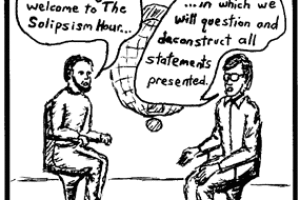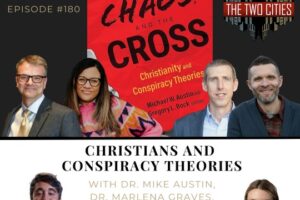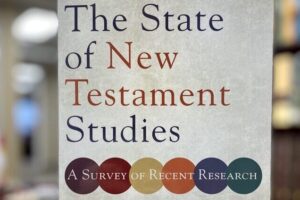Evangelical Faith and the Challenge of Historical Criticism is a collection of essays written in response to the challenges that historical criticism brings to traditional evangelical approaches to the Bible. Rather than being an apologetic defense of conservative methods, this book is unique in helping the reader to think through the implications for faith and theology if one engages with historical-critical approaches to the Bible. Evangelicals have often viewed historical-critical methods as antithetical to faith because it is thought that this method calls into question evangelical notions of Scripture’s truth and authority. How can evangelicals engage in discussion with historical criticism without ending up on a “slippery slope”? One of the primary goals of the authors is to convince evangelicals of the need to engage in scholarly discussion, while assuring that it can be done without jeopardizing evangelical faith.
The responses by the authors vary in levels of engagement with, and acceptance of, historical critical claims. Each illustrates that one can participate in the discussion in constructive, academic ways. The book is not an argument against the claims of historical criticism, but is a series of thought experiments regarding what it would mean for evangelical faith if those claims were true. Each essay asks a series of questions around a topic and teases out the issues and implications of each. Some of the questions asked include: How would the doctrine of sin be affected if there were no historical Adam? What would it mean if the Exodus were not an historical event? How should an evangelical respond to the claim that Deuteronomy is a “pious fraud” (pg 74)? What does one do with unfulfilled prophecies? Is pseudepigraphy a problem? Did Jesus’ virgin birth, miracles, and resurrection need to occur?
With some of the topics, the authors show that many of the issues addressed are not as clearly dichotomous as often thought. In many cases, there is room for some middle ground. In the essay titled, The exodus: fact, fiction, or both?, Christopher Ansberry explores the troubling lack of evidence either for or against the historicity of the Exodus event. Though he does state that the historicity question matters, Ansberry shows that one must understand the complexity of historical writing in the Bible. The options are not fact or fiction. Rather, Ansberry discusses the ancient practice of appropriating historical events into new contexts to give new significance. Accepting that later writers adapted the stories to new contexts does not mean the tradition is no longer authoritative, nor does it require that one view it as corrupt.
Though middle ground is cleared in some of the topics, there are points in which the authors state that there is no compromising position. In The historical Jesus, Daling and Hays discuss Jesus’ virgin birth, miracles, and resurrection. They state that the answers one gives to the historicity of these three aspects of Jesus’ life and death have dramatic effect upon one’s Christology. On the matter of the resurrection, they ask whether Christian theology can stand without an affirmation of the resurrection. Their answer is, “absolutely not” (pg 174). The authors of the book are gracious in their portrayal of different scholarly views, but are also honest about where they choose to draw a line.
This is a book for evangelicals and conservatives who struggle with challenges to their views of the Bible that arise as a result of engaging with historical criticism. As the essays are short, the authors did not have space to explain all of the critical theories with which they engage. These quick references to scholars and theories, along with academic language used, make this book a better fit for those who have some amount of academic background in biblical studies or theology (although it is by no means inaccessible to any well-read person). Its content makes it useful for undergraduate or postgraduate work. For example, it would work well in a class on methods of biblical study. Additionally, its essay-based style would allow it to be used for the study of individual topics.
The Bottom Line: Though one may not agree with every answer and approach given in the book, it is an excellent introduction for evangelicals who wish to engage in broader scholarly discussions concerning biblical criticism.
Adam Harger
University of St. Andrews





3 Comments
Leave your reply.